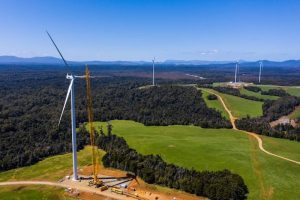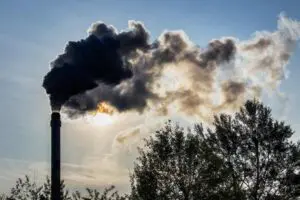Efforts by multinational social media companies to stamp out political advertising has inadvertently captured clean energy companies, with advertisements for rooftop solar and clean energy events blocked for being ‘political’.
Two of the largest social media networks, Facebook and Twitter, have both blocked advertisements from clean energy companies trying to use the platform to build and promote their businesses.
The advertising bans appears to have captured companies trying to promote industry events, advertise products like rooftop solar or electric vehicles, prevented from running paid advertising.
Social media networks have sought to address the emerging spread of fake news including misinformation specifically targeted at influencing voters ahead of elections. In response, companies like Twitter and Facebook have implemented new advertising content rules, which limit the kinds of political content that can be advertised on their platforms.
However, it appears that some companies have fallen afoul of these efforts when trying to advertise products or events that are being marketed on the basis of their environmental credentials, or when advertising makes reference to government policies.
Twitter’s ‘political content’ policy effectively bans all forms of political advertising, including advertisements that include references to political candidates or parties, and elected officials or election campaigns.
The problem, as the Smart Energy Council discovered when it tried to advertise its upcoming Global Smart Energy Summit on Twitter, is that the restrictions being imposed by the social network prevent any forms of advertising that mention politicians, even when they are only being listed as one of a number of speakers appearing at a conference.
You won't believe this!@Twitter has blocked our ad promoting the Global Smart Energy Summit on 29-30 September
They say it's "Political"!
Please help us promote the Global Smart Energy Summit & share this post.
Register for this amazing FREE event at https://t.co/iku7ygAaHy pic.twitter.com/cEnerDwfr9
— SmartEnergyCouncil (@SmartEnergyCncl) September 21, 2020
“Twitter has got this so wrong. The Global Smart Energy Summit is a free, online Summit – Australia’s biggest ever online energy and climate change event,” Smart Energy Council CEO John Grimes said.
“We’ve brought together world leaders, leading global economists, business figures and environmentalists to discuss how we tackle the economic crisis and the climate crisis at the same time and the economic and employment opportunities that come from that.”
“These issues are critical to Australia’s future. The Global Smart Energy Summit is a vital event and Twitter should not be blocking the advertising of the Summit.”
Twitter confirmed to RenewEconomy that in the case of the Smart Energy Council’s advertisement for the Global Smart Energy Summit, it had been blocked due to advertisement having included tagged the Prime Minister of Fiji, who is speaking at the event.
The advertising restrictions have also affected rooftop solar businesses and other clean energy organisations on Facebook, with companies looking to promote their products also having advertisements blocked when mentioning “clean energy, fossil fuels, or climate change”.
While Twitter’s advertising restrictions are related more directly to limiting paid advertisements for political campaigns and politicians, Facebook as implemented an advertising ban on certain “social issues in any place where the ad is being placed.”
In most places, including Australia, the United States, the European Union, New Zealand, the United Kingdom and Canada, Facebook lists “environmental politics” as a social issue that would see advertisements blocked.
This ban, RenewEconomy understands, has seen companies promoting rooftop solar or battery storage systems, who may wish to promote the environmental benefits of switching to solar and how it can help prevent climate change, having their ads removed from Facebook.
I do marketing work for a solar installation company & we’ve had so many problems with Facebook ads & boosted post being rejected when they mention clean energy, fossil fuels, or climate change. It’s a small business trying to make solar power affordable for the community.
— Erin Brennan (@ErinBrennan) September 12, 2020
When contacted by RenewEconomy, Twitter said companies and organisations that were involved in climate change action or the promotion of clean energy technologies, could apply for a ’caused based advertising’ certification, allowing the groups to run advertising that mentions otherwise politically contentious issues.
To obtain the certification, groups must register with Twitter, providing business details and be able to show that their ads are neither trying to influence political outcomes, and “must be tied to the organisation’s publicly stated values, principles, and/or beliefs.”
Facebook offers a similar certification process for advertisers, but requires an individual who has responsibility for managing the Facebook account running advertisements to prove their identity to the social network, including by submitting photo identification or official documents to Facebook, and requires the advertises to include certain messaging with their advertisements.
“Our policy requires that any advertiser who wants to create or edit ads targeting this country that reference political figures, political parties or elections must go through the authorisation process, place “Paid for by” disclaimers on ads and have these ads enter the Ad Library. This includes any person creating, modifying, publishing or pausing ads about social issues, elections or politics,” the Facebook policy states.
A spokesperson for Facebook told RenewEconomy that the social network does not have a specific “policy that prevents businesses or entities from advertising the legitimate sale of household solar products”, but that advertisements may be blocked if they mention ‘political environment policies’ and ‘political topics’ if the advertiser has not completed the certification process.
Social media has emerged as an attractive platform for a wide range of advertisers, including Instagram, which was recently being used by Australian gas company Jemena to promote the use of gas through sponsored posts made by a range of ‘Instagram influencers’. The ‘Go Natural Gas’ campaign was wound back following criticism from environmental groups.










